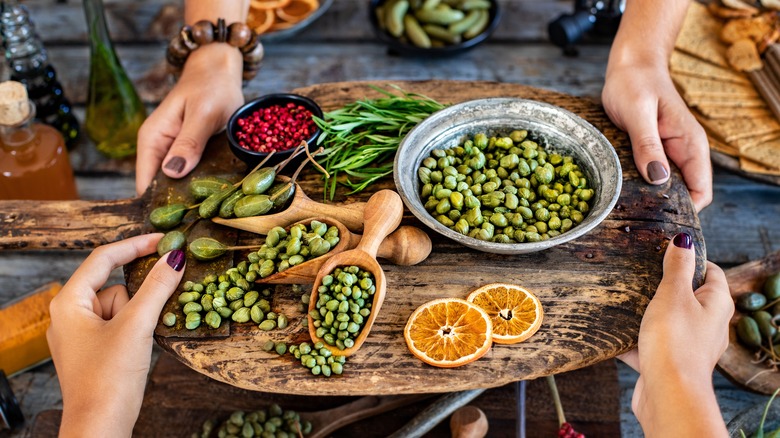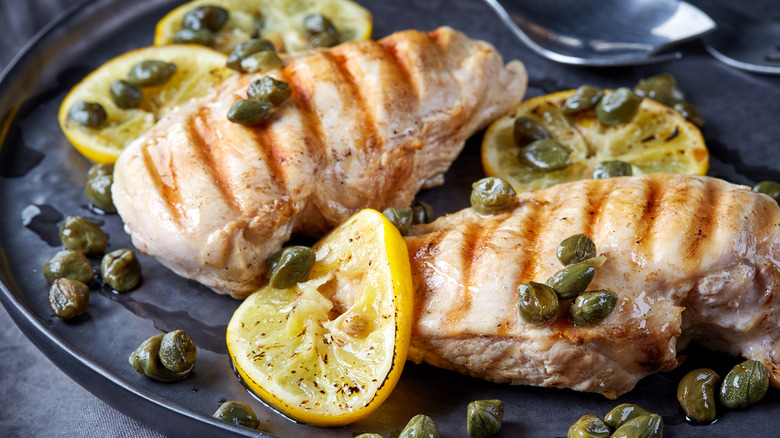Take Your Cooking To The Next Level With Fried Capers
When you think of capers, you probably imagine those otherworldly, little green bubbles floating around in a small bottle of brine, but (if you're being honest) you don't know if they grow on a tree or a bush, if they are a vegetable or berry, or whether you like them on anything other than a smoked salmon bagel.
Capers are, in fact, unripe flower buds that grow on bushes that were once native only to the Mediterranean coast, according to Food Network. Once the buds are plucked, they're usually dry-cured or pickled. Capers have been harvested for centuries, and Nonna Box claims that they've been referred to in some of history's most famous and oldest literature, including the Gilgamesh, which is believed to have been written around 2700 B.C.
Since they store well, capers are great for keeping in your pantry for flavor emergencies. The little flowers pack quite the punch and bring a citrusy, salty bomb to whatever dish you add them to. The little buds are widely popular in Mediterranean cuisine and are commonly paired with fish, chicken piccata, pasta, pizza, salads, and sauces or dressings (via A Couple Cooks). But next time you get a jar of the stuff, try frying it up instead of adding it to your recipe fresh.
Frying develops their flavor
At first, you might balk at first at the idea of frying your capers. But you certainly won't regret it because when fried, the buds lose the puckering intensity and develop a subtler flavor that is nutty, salty, and crispy (via Foodtasia). Additionally, the closed bud open under the influence of the hot oil.
According to Bon Appétit, fried capers can be tossed into many dishes, including polenta, roasted cauliflower, tomato toast, and even creamy seafood chowder. In addition to being a perfectly crunchy and salty garnish, if you fry your capers, you'll also be left with oil that's infused with them, which can be saved to enhance the flavor of salad dressings and baked, fried, or roasted dishes, whether they be side veggies or main course meats.
Kitchn suggests that when frying capers, you must first wash and dry them thoroughly. This will keep the oil splatter to a minimum and allow them to fry without fighting the moisture. The capers will finish frying in just three minutes, and after they're crispy, strain them and let them cool on a clean paper towel. Now break out one of the little bottles and get cracking!

